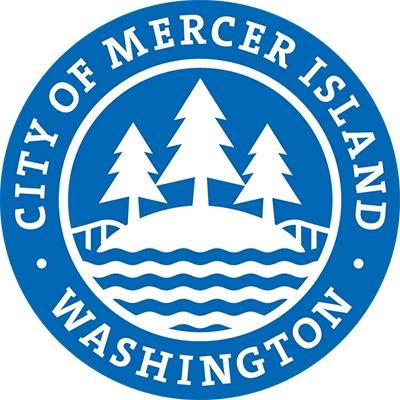The Mercer Island City Council discussed operating and capital levy lid lift ballot measures at a “micro-planning session” Friday at the Community and Event Center, concluding that a new source of revenue will likely be needed to balance the 2017-18 city budget.
The council had its preliminary budget presentation and distribution at its Oct. 4 regular meeting, after Reporter deadline.
Finance Director Chip Corder recommended initiating a public engagement process in February‐April 2017 on the city’s operating funding needs, soliciting input and gauging support before taking formal action to put an operating levy lid lift on the November ballot. The election in August 2017 was also an option, but would be more expensive and shorten the engagement process to two months instead of three.
Two council levy lid lift committees were created at the June 2016 mini‐planning session to explore the possibility of going to the voters in 2017. A property tax levy lid lift requires simple majority (50 percent plus 1) voter approval, whether used for operating or capital purposes.
If both an operating and a capital levy lid lift are put on the same ballot in 2017, the council agreed that the capital levy cost impact should be limited to $100 per year on a $1 million home. The operating levy would be about $346 per year, or about $30 per month, for six years.
The public engagement process is necessary because the $1 million projected deficit in 2017 may be a little hard to believe. As Councilmember Dan Grausz pointed out, the city has had surpluses of more than $1 million for the past few years. Corder said that was tied to usually high levels of development activity on the Island. The development fees and construction-related sales tax revenue from 2014 to 2016 were a result of a “record setting spike” that masked the underlying structural imbalance between revenue and expenditure growth.
In addition to projected deficits, the city also has operating funding needs and capital project funding challenges.
Corder suggested tying the operating levy lid lift to maintaining current service levels in the Parks and Recreation and Youth and Family Services (YFS) departments, as “discretionary services,” including park maintenance, recreation programs and mental health counseling in public schools, will have to be cut without a new revenue source beginning in 2018.
The Contingency Fund (the city’s rainy day reserve) would have to be drawn down in 2018 by $1.22 million (or 48 percent) to balance the General Fund and YFS Fund absent a new revenue source, Corder told the council later.
Deputy Mayor Debbie Bertlin said that she resented the classification of parks and YFS services as “discretionary,” but they are lower on the city’s priority list than other departments, like police and fire.
The alternative to going to the voters is to cut positions (full-time employees, or FTEs) to balance the General Fund and Youth and Family Services Fund budgets in 2018‐2023. About 53 employees, or a quarter of the city’s workforce, would need to be cut by 2023.
“Given how leanly staffed the city is (based on the number of employees per 1,000 population), this budget balancing option would have very significant service level impacts,” according to the Sept. 30 agenda bill.
Most of the city’s costs are tied to staff, accounting for 72 percent of the General Fund budget and 83 percent of the Youth and Family Services Fund budget (which includes the school counselors).
Councilmember Dave Wisenteiner suggested a stand-alone levy for the counselors, to guarantee that program wouldn’t get cut even if the levy requests don’t pass.
If the preliminary operating levy is put on the ballot and passes on Nov. 7, 2017, the city would be also able to fund additional FTEs for communications, IT and youth development.
The preliminary capital levy, if approved by Island voters, would pay for $9 million of unfunded projects related to parks, pedestrian/bicycle facilities and a public building (i.e. renovation/expansion of the Maintenance Center). A stakeholder group would be assembled to provide input on the list of projects.
The council agreed that even if the funding requests aren’t palatable to voters next year, it’s worth it to start the public education process about the city’s finances.
“Maybe we land it the first time around and maybe we don’t,” Bertlin said. “But we need to start engaging with the community, regardless of the immediate outcome.”
For more, see www.mercergov.org/CouncilMeetings.


